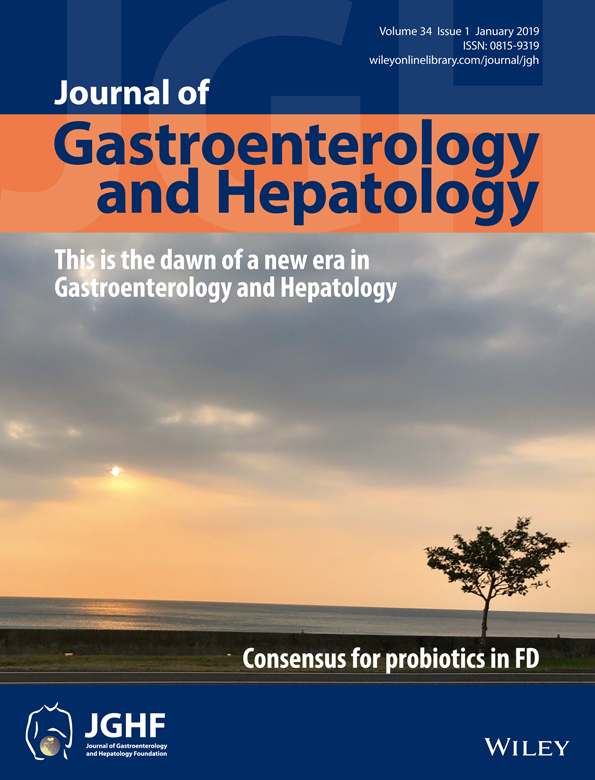Systematic review with meta-analysis: The association between post-traumatic stress disorder and irritable bowel syndrome
Abstract
Background and Aim
Post-traumatic stress disorder (PTSD) is a psychiatric condition characterized by symptoms of hyperarousal and hypervigilance. Increasing research on the “gut–brain” axis (bidirectional signaling between the gut and the brain) has drawn links between PTSD and irritable bowel syndrome (IBS), an exceedingly common yet incompletely understood gastrointestinal condition. This meta-analysis thus aimed to examine the body of evidence and extent of association of PTSD with IBS.
Methods
Using the keywords [early abuse OR childhood abuse OR violence OR trauma OR PTSD] AND [irritable bowel syndrome or IBS], a preliminary search on the PubMed, Medline, Embase, ScienceDirect, PsychINFO, Web of Science, and Google Scholar databases yielded 11,257 papers published in English between January 1, 1988, and May 1, 2018. Of these, only eight studies were included in the final meta-analysis.
Results
The eight studies (four cross-sectional and four cohort) contained a total of 648,375 subjects. Most studies were from the USA and conducted on army veterans. The funnel plot revealed a roughly symmetrical distribution of studies, and Egger test was not significant for publication bias (P = 0.583). Random-effects meta-analysis found PTSD to be a significant risk factor for IBS (pooled odds ratio 2.80, 95% confidence interval: 2.06 to 3.54, P < 0.001).
Conclusions
Overall, PTSD is associated with an increased likelihood of IBS. This is the first meta-analysis to specifically examine the association between PTSD and IBS, and it provides insights into the probable (patho)physiology and management of IBS, supporting a holistic consideration of the psychosocial aspects of IBS and further research into effective multi-modal therapeutics.




